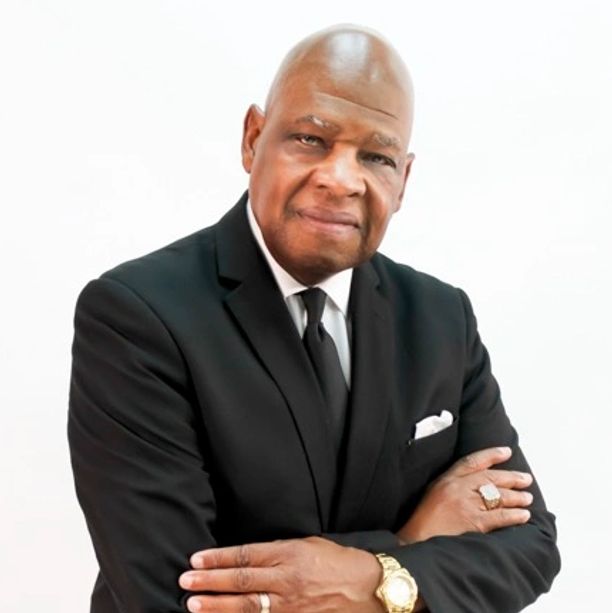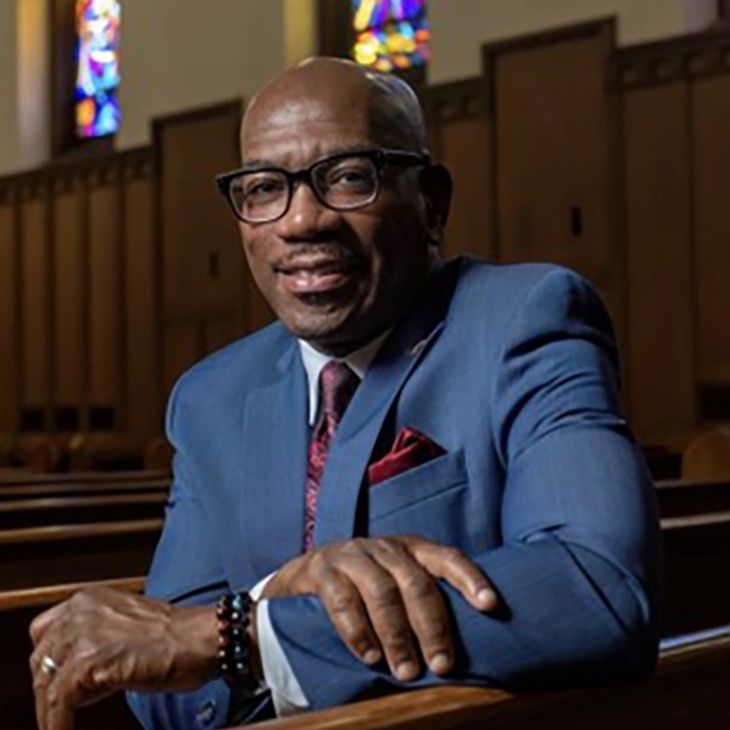 The PD110D Masterclass: The Seven Fundamental Qualities of Exceptional Leaders, presented by Aenon Bible College, outlines a transformative framework for church leaders striving for excellence in ministry. Led by Suffragan Bishop Dr. Eugene T.W. Sanders, the seminar emphasizes that all leaders have the potential for exceptionalism through spiritual commitment, next-level dedication, and God-centered motives. The presentation highlights key leadership traits—motivation, influence, responsibility, vision, overcoming adversity, and relationship-building—framed by seven core qualities such as being Spirit-led, embracing faith and sacrifice, and managing adversity with grace. It concludes with four strategies—reflection, restoration, revelation, and reformation—to foster continual growth and integrity in leadership.
The PD110D Masterclass: The Seven Fundamental Qualities of Exceptional Leaders, presented by Aenon Bible College, outlines a transformative framework for church leaders striving for excellence in ministry. Led by Suffragan Bishop Dr. Eugene T.W. Sanders, the seminar emphasizes that all leaders have the potential for exceptionalism through spiritual commitment, next-level dedication, and God-centered motives. The presentation highlights key leadership traits—motivation, influence, responsibility, vision, overcoming adversity, and relationship-building—framed by seven core qualities such as being Spirit-led, embracing faith and sacrifice, and managing adversity with grace. It concludes with four strategies—reflection, restoration, revelation, and reformation—to foster continual growth and integrity in leadership. The presentation The Art of Preaching by Dr. Kenyatta R. Gilbert, who is a Dean & Professor of Homiletics at Howard University School of Divinity, explores the multifaceted identity and vocation of the preacher, emphasizing the integration of character, context, and content in ministry. It introduces five essentials—hearing, confessing, claiming, knowing, and facing—as foundational to effective preaching, while urging a holistic "trivocal" approach that incorporates prophetic, priestly, and sagely voices. Dr. Gilbert categorizes seven preacher personas, each with unique strengths and pitfalls, and critiques the reduction of Black preachers to cultural caricatures. Ultimately, the work calls for authentic, context-aware, and theologically grounded proclamation that responds to both congregational needs and societal challenges.
The presentation The Art of Preaching by Dr. Kenyatta R. Gilbert, who is a Dean & Professor of Homiletics at Howard University School of Divinity, explores the multifaceted identity and vocation of the preacher, emphasizing the integration of character, context, and content in ministry. It introduces five essentials—hearing, confessing, claiming, knowing, and facing—as foundational to effective preaching, while urging a holistic "trivocal" approach that incorporates prophetic, priestly, and sagely voices. Dr. Gilbert categorizes seven preacher personas, each with unique strengths and pitfalls, and critiques the reduction of Black preachers to cultural caricatures. Ultimately, the work calls for authentic, context-aware, and theologically grounded proclamation that responds to both congregational needs and societal challenges.

%20(2)-1c46364.png/:/cr=t:0%25,l:17.71%25,w:82.29%25,h:100%25/rs=w:730,h:730,cg:true) The presentationThe Dynamics of Effective Auxiliary Leadershipby Bishop LaVelton J. Daniel and Pastor Patricia A. Daniel offers a comprehensive guide to cultivating impactful leadership within church auxiliaries. It emphasizes the importance of intentional vision, strategic planning, and servant leadership in supporting the broader mission of the church. The course equips leaders with tools for organizational effectiveness, team-building, communication, and spiritual development while highlighting leadership models like transformational and collaborative leadership. Through practical assessments and planning exercises, participants are encouraged to align with their pastors vision, enhance ministry functionality, and foster a culture of trust, innovation, and excellence in service.
The presentationThe Dynamics of Effective Auxiliary Leadershipby Bishop LaVelton J. Daniel and Pastor Patricia A. Daniel offers a comprehensive guide to cultivating impactful leadership within church auxiliaries. It emphasizes the importance of intentional vision, strategic planning, and servant leadership in supporting the broader mission of the church. The course equips leaders with tools for organizational effectiveness, team-building, communication, and spiritual development while highlighting leadership models like transformational and collaborative leadership. Through practical assessments and planning exercises, participants are encouraged to align with their pastors vision, enhance ministry functionality, and foster a culture of trust, innovation, and excellence in service.
 The presentation "Biblical Justice & DEI: Advancing Gods Kingdom Through Equity" by Senator Rod Hickman explores Diversity, Equity, and Inclusion (DEI) through a biblical lens, emphasizing that DEI principles align closely with Gospel teachings. Grounded in scripture, the presentation highlights how all people are created in God's image and are called to justice, mercy, and inclusion. It addresses common objections to DEI, refuting them with biblical references that support unity, fairness, and advocacy for the marginalized. Church leaders are urged to model inclusive leadership, address systemic inequities, engage younger generations, and actively participate in justice-driven initiatives, reaffirming the Church's historical role in promoting equity and compassion.
The presentation "Biblical Justice & DEI: Advancing Gods Kingdom Through Equity" by Senator Rod Hickman explores Diversity, Equity, and Inclusion (DEI) through a biblical lens, emphasizing that DEI principles align closely with Gospel teachings. Grounded in scripture, the presentation highlights how all people are created in God's image and are called to justice, mercy, and inclusion. It addresses common objections to DEI, refuting them with biblical references that support unity, fairness, and advocacy for the marginalized. Church leaders are urged to model inclusive leadership, address systemic inequities, engage younger generations, and actively participate in justice-driven initiatives, reaffirming the Church's historical role in promoting equity and compassion.
 Pastors Leading from Your Backstageby Bishop R.E. Hairston uses the sociological concepts of "front stage" and "backstage" as metaphors to explore authentic leadership. The front stage represents the visible, public persona and achievements, while the backstage symbolizes one's private selfvalues, purpose, and emotional health. Hairston emphasizes the need for leaders, especially those in ministry, to nurture their backstage through self-reflection, emotional intelligence, self-care, and setting boundaries. By strengthening this internal foundation, leaders can avoid burnout, maintain integrity, and achieve sustainable success without sacrificing their well-being or personal identity.
Pastors Leading from Your Backstageby Bishop R.E. Hairston uses the sociological concepts of "front stage" and "backstage" as metaphors to explore authentic leadership. The front stage represents the visible, public persona and achievements, while the backstage symbolizes one's private selfvalues, purpose, and emotional health. Hairston emphasizes the need for leaders, especially those in ministry, to nurture their backstage through self-reflection, emotional intelligence, self-care, and setting boundaries. By strengthening this internal foundation, leaders can avoid burnout, maintain integrity, and achieve sustainable success without sacrificing their well-being or personal identity.
 The presentation "Trauma Informed Ministry" by Dr. LaNika L. Wright explores the role of the Church in addressing trauma through a compassionate, informed, and spiritually grounded approach. It defines trauma as an adaptive response rather than a disorder, emphasizing the emotional, physical, and spiritual impacts on individuals. The ministry is encouraged to recognize trauma symptoms, respond with care, and avoid re-traumatization. Biblical examples of trauma, neurobiological insights, and practical guidance for fostering safe spaces and emotional healing are highlighted. Ultimately, the presentation calls on faith communities to be empathetic, supportive, and resource-connected sanctuaries for healing.
The presentation "Trauma Informed Ministry" by Dr. LaNika L. Wright explores the role of the Church in addressing trauma through a compassionate, informed, and spiritually grounded approach. It defines trauma as an adaptive response rather than a disorder, emphasizing the emotional, physical, and spiritual impacts on individuals. The ministry is encouraged to recognize trauma symptoms, respond with care, and avoid re-traumatization. Biblical examples of trauma, neurobiological insights, and practical guidance for fostering safe spaces and emotional healing are highlighted. Ultimately, the presentation calls on faith communities to be empathetic, supportive, and resource-connected sanctuaries for healing.
 ThePAW Aenon Master Class: Modern Challenges to Apostolic Theology, presented by Bishop Horace E. Smith, explores the pressing theological and cultural challenges confronting the Apostolic Pentecostal Church in the 21st century. The presentation addresses issues such as secularism, gender identity, sexuality, digital ministry ethics, and the reinterpretation of Oneness theology, urging church leaders to respond with biblically grounded, theologically sound, and culturally aware approaches. Emphasizing spiritual and ministerial formation, apologetics, and ongoing education, it calls for a renewed commitment to doctrinal truth while navigating complex ethical questions like human cloning and personhood. Ultimately, the course encourages thoughtful, compassionate, and well-informed engagement with contemporary society while remaining anchored in Apostolic faith and doctrine.
ThePAW Aenon Master Class: Modern Challenges to Apostolic Theology, presented by Bishop Horace E. Smith, explores the pressing theological and cultural challenges confronting the Apostolic Pentecostal Church in the 21st century. The presentation addresses issues such as secularism, gender identity, sexuality, digital ministry ethics, and the reinterpretation of Oneness theology, urging church leaders to respond with biblically grounded, theologically sound, and culturally aware approaches. Emphasizing spiritual and ministerial formation, apologetics, and ongoing education, it calls for a renewed commitment to doctrinal truth while navigating complex ethical questions like human cloning and personhood. Ultimately, the course encourages thoughtful, compassionate, and well-informed engagement with contemporary society while remaining anchored in Apostolic faith and doctrine.
 The Introduction to Hermeneutics presentation by Dr. L. LaMont Turner provides a foundational guide to interpreting Scripture accurately and faithfully, emphasizing the need for proper tools, historical context, and structured principles. It outlines essential study resources, explains the linguistic background of the Bible, and introduces key interpretive rules such as context, logic, and unity. The presentation stresses that each biblical text has one interpretation but many applications and teaches students how to discern the theme and thrust of a passage. It also offers practical examples and methodslike the Big Bones, Small Bones techniquefor analyzing structure and meaning, ultimately aiming to bridge the gap between ancient texts and modern understanding.
The Introduction to Hermeneutics presentation by Dr. L. LaMont Turner provides a foundational guide to interpreting Scripture accurately and faithfully, emphasizing the need for proper tools, historical context, and structured principles. It outlines essential study resources, explains the linguistic background of the Bible, and introduces key interpretive rules such as context, logic, and unity. The presentation stresses that each biblical text has one interpretation but many applications and teaches students how to discern the theme and thrust of a passage. It also offers practical examples and methodslike the Big Bones, Small Bones techniquefor analyzing structure and meaning, ultimately aiming to bridge the gap between ancient texts and modern understanding.